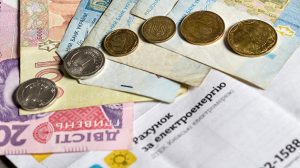
The Ukrainian government has taken a number of systemic measures to avoid a sharp rise in tariffs for housing and utility services amid rising energy prices in the world, Deputy Head of the Office of the President of Ukraine Rostyslav Shurma has said.
According to a posting on the website of the Office of the President on Wednesday, he said that some adjustments of some tariffs are possible within the inflation expectations of 10-11%, including tariffs for gas distribution and delivery, but the price of gas for households will not increase during the current heating season.
“The government has provided large funds to keep gas tariffs for households at last year’s level – below UAH 8 per cubic meter. The government has also allocated funds to provide preferential gas to municipal heating companies, so that households can receive heating at almost last year’s prices,” Shurma said.
According to Shurma, the government also managed to keep electricity prices for the population from rising this year and even cut them for some categories of consumers.
He said that the increase in tariffs for the supply or distribution of electricity for regional power companies will not in any way affect the cost of electricity for households.

Some 94% of Ukrainians think that utility rates are excessive, and 70.4% – that the authorities are unsuccessfully countering the coronavirus (COVID-19) disease, according to the results of a survey conducted by the Ukrainian Sociological Group from January 26 to February 2, 2021.
According to a sociological survey, which was release in the press center of the Interfax-Ukraine on Wednesday, 94% of Ukrainians think that tariffs for utility services are excessive, 3.6% think that tariffs are economically justified, and 2.4% found it difficult to answer.
Answering the question what was the main reason for the increase in utility tariffs for the population, 44.9% of respondents named mismanagement and lack of professionalism of the government, 23.6% – collusion of energy companies, 14.2% – requirements of the International Monetary Fund (IMF) and international lenders, 9.6% – the decision of the authorities to switch to free pricing for energy resources, 3.1% – an increase in world energy prices, and 4.6% found it difficult to answer.
In addition, answering how successfully the authorities are in countering the COVID-19 epidemic in Ukraine, 3.4% of respondents answered that countering is successful, 20.9% – more likely to be successful, 31.6% – more likely to be unsuccessful, 38.8% – unsuccessful, and 5.3% found it difficult to answer.
Answering what the respondents are more afraid of: the COVID-19 epidemic or the economic consequences of the quarantine (lockdown), 29.2% answered that they were afraid of the epidemic, 59.1% – the economic consequences of quarantine restrictions, 7.8% were afraid of neither of these, and 3.9% found it difficult to answer.
A total of 1,209 respondents aged 18 and older were interviewed during the survey. The sample set is a multistage random one, at the last stage – a quota one. The survey method is an individual face-to-face interview at the respondent’s place of residence (at home). The statistical error does not exceed 3.0%